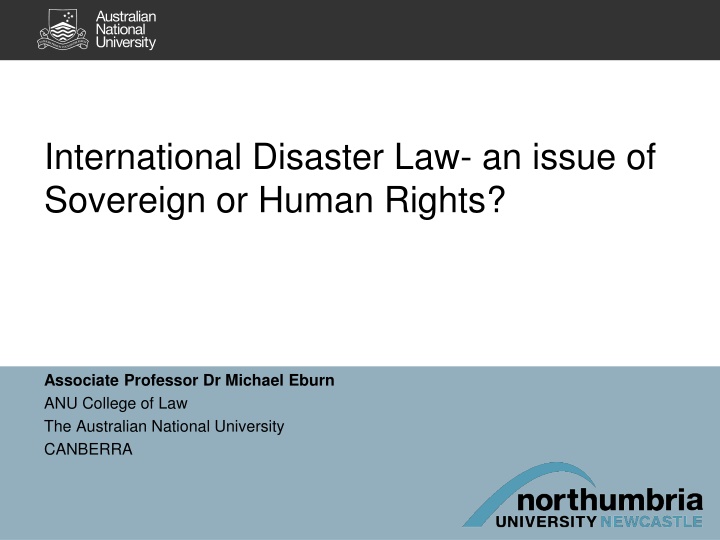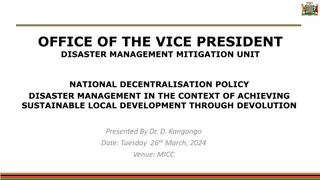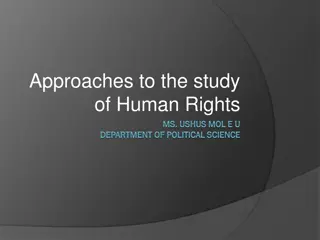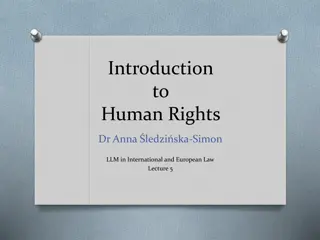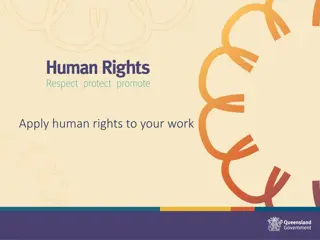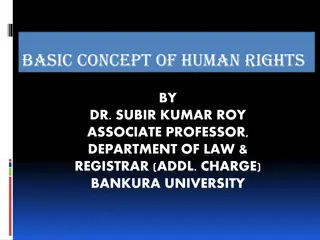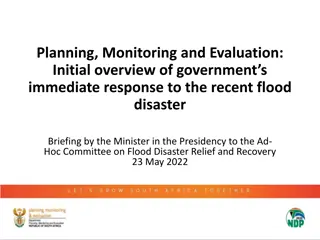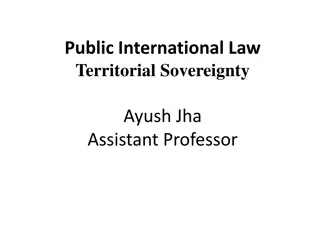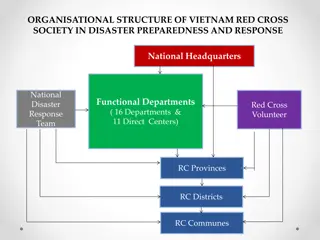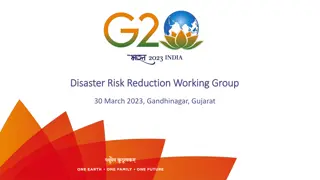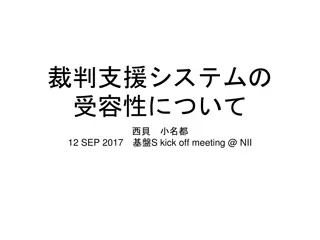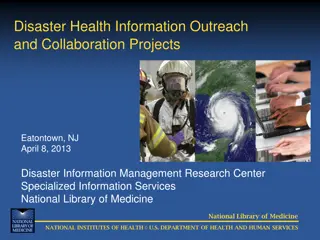International Disaster Law: Sovereignty vs. Human Rights
Associate Professor Dr. Michael Eburn from ANU College of Law discusses the complex dynamics between state sovereignty and human rights in the context of international disaster law. Explore the role of the affected state, the debate between needs-based and rights-based approaches, and the importance of balancing sovereignty with the rights of those affected by disasters.
Download Presentation

Please find below an Image/Link to download the presentation.
The content on the website is provided AS IS for your information and personal use only. It may not be sold, licensed, or shared on other websites without obtaining consent from the author.If you encounter any issues during the download, it is possible that the publisher has removed the file from their server.
You are allowed to download the files provided on this website for personal or commercial use, subject to the condition that they are used lawfully. All files are the property of their respective owners.
The content on the website is provided AS IS for your information and personal use only. It may not be sold, licensed, or shared on other websites without obtaining consent from the author.
E N D
Presentation Transcript
International Disaster Law- an issue of Sovereign or Human Rights? Associate Professor Dr Michael Eburn ANU College of Law The Australian National University CANBERRA
International Disaster Law International Disaster Response Law (IDRL) Disaster Risk Reduction (DRR) 3
International Disaster Law International Disaster Response Law (IDRL) Disaster Risk Reduction (DRR) IFRC Guidelines ILC Draft Articles Sendai Declaration 4
The driving principle is State Sovereignty. UNGA Resolution 46/182 on Strengthening of the coordination of humanitarian emergency assistance of the United Nations The sovereignty, territorial integrity and national unity of States must be fully respected in accordance with the Charter of the United Nations. 5
The International Law Commission reaffirms the primary role of the affected State in the provision of disaster relief assistance, which is a core element of the draft articles. The reference to sovereignty, and the primary role of the affected State, provides the background against which the entire set of draft articles is to be understood. (Draft Articles on the Protection of Persons in the Event of Disasters, Commentary, Preamble [6] (2016)). 6
Needs v Rights The [International Law] Commission was aware of the debate in the humanitarian assistance community on whether a rights based approach as opposed to the more traditional needs-based approach was to be preferred, or vice versa. (Draft Articles on the Protection of Persons in the Event of Disasters, Commentary Art 2 [1] (2016)). 7
Needs v Rights Needs based - those affected are victims who need to be rescued. Rights based - those affected have rights to be involved in decision making and to demand assistance. May be able to turn to courts and other human rights enforcement mechanisms. 8
The Sendai Framework for DRR Disaster risk reduction requires empowerment and inclusive, accessible and non discriminatory participation A gender, age, disability and cultural perspective should be integrated in all policies and practices, and women and youth leadership should be promoted [19(d)]. 9
International Law Commission Greater concern with rights and concomitant duties. Proposes that governments have duties to Cooperate (art 7); Ensure the protection of persons and the provision of disaster relief assistance (art 10); To seek assistance where a disaster exceeds national capability (art 11); Not to arbitrarily withhold consent for the delivery of assistnace (art 13(2)). 10
Status UNGA Resolution 46/182 binds the UN. Sendai is soft law . ILC recommends a treaty but will it succeed? Draft 1984 treaty was not accepted. UNGA removed reference to disasters when adopting the doctrine of the Responsibility to Protect . 11
Countries Appear unwilling to accept universal binding obligations with respect to DRR and disaster relief. Room for regional cooperation ASEAN. EU. 12
In the other room Research is supposedly taken up by governments and relevant institutions and used to inform policy. We need to rethink these comforting assumptions 13
Conclusion The international community is concerned with DRR and response. But international law remains weak focused on ensuring the rights of states to make their own decision and avoiding commitments on other states to assist. 14
